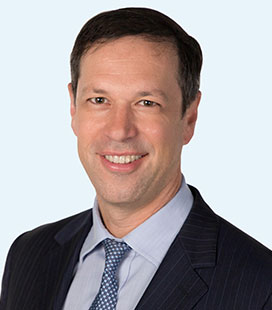
David Y. Feigenblum, MD, PhD, is medical director of the Implantable Cardioverter Defibrillator Center at Englewood Health
What options are there to protect someone with a weak heart?
Dr. Feigenblum: When abnormal electrical signals in the ventricles cause the heart to beat too rapidly (tachycardia) or just quiver (fibrillation), an implantable cardioverter defibrillator (ICD) can save a person’s life. Patients at risk typically have a weak heart muscle due to coronary artery disease, prior heart attack, or heart infection. Other risk factors include previous cardiac arrest and certain genetic factors. The internal device is implanted in the chest. When it detects a dangerously fast heartbeat, it delivers a small (or sometimes large) electrical shock to restore the normal heart rhythm.What’s involved in the implantation of a cardioverter defibrillator?
Dr. Feigenblum: ICDs are implanted through a minor surgical procedure at the hospital. Patients stay overnight and go home the next day. The device will continuously monitor the heart’s rhythm, detect abnormalities, and deliver treatment. Pacing therapy is painless, so patients generally don’t feel anything.Will an ICD help me live longer? Give me better quality of life?
Dr. Feigenblum: Essentially, patients have no restrictions after the initial recovery period. They often want to know if they can travel. The ICD allows them to go about their normal lives with the assurance that they are protected. If a patient experiences a cardiac event, the system can transmit the information from the defibrillator over a phone line. The medical team can then log in to a secure site and see what is going on without the patient having to come in to the hospital.What options are there beyond ICDs?
Dr. Feigenblum: At Englewood Health, we have a full-service and highly experienced electrophysiology team. In addition to pacemakers and ICDs, our team implants resynchronization devices in advanced heart failure patients, which can significantly improve quality of life. We also routinely perform procedures to treat atrial fibrillation and ventricular tachycardia, as well as a range of other cardiac tests and procedures. Posted February 2019
David Y. Feigenblum, MD, PhD, is medical director of the Implantable Cardioverter Defibrillator Center at Englewood Health
